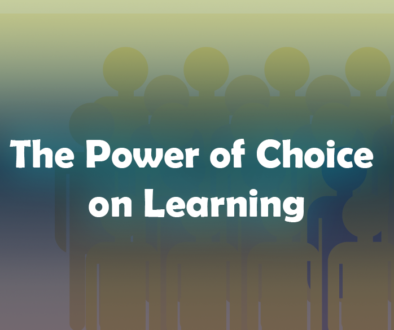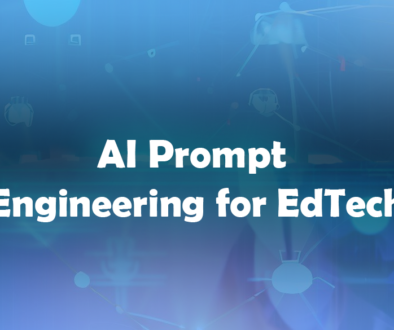Improving MOOCs
Objective and Background
MOOCs (Massive Open Online Courses) are generally considered to be open courses that are offered by prestigious universities that anyone can sign up for.[1]
I am interested in both creating and testing the value of adding aspects of personalized learning and motivational enhancement (i.e., gamification) to standard MOOCs (Massive Open Online Courses), to see if the additional functionality will help student outcomes including both course completion and subject mastery.
I have been reviewing the literature using Google Scholarly and the Association for Computing Machinery (ACM) Library through the Georgia Tech electronic library as well as reviewing what was available on the internet to determine if anything like this already existed, and if not, to find what might be accomplished in this area.
Research
The landscape of current MOOCs
There are over 80 MOOC providers[2], but the largest players all have a very similar format. The majorities of the classes are video based, and have check your understanding type quizzes between lectures. Most also have longer assignments that you do along with the class. Most of the MOOCs have some form of peer grading
if they have grading.
As far as I know, none of the major players have added any branching or any form of personalized path thought the courses. They are all linear and for the most part are built with the intention of having the student complete every video and quiz in the class.
MOOC review
Currently there are a variety of MOOC platforms that exist, so I began by determining which of these would allow customization in order to experiment with. Many of the MOOC platforms allow user generated content to be added, so that one can create their own class and offer it on the platform.
Below is a table of the MOOCs that I have reviewed, and some information about them. I have added columns for “User Defined Classes Allowed”, “Customized User Experience” and “Hosting Type.” User defined classes allowed refers to the ability to add a new course to the platform. If I can add a new course, it would be a candidate for modification. Customized user experience refers to the ability of a developer to modify the instructional path and content. Allowing modification of the content and learning path is required for augmenting the MOOC to include personalized learning. Hosting type refers to where the software will run.
Self-hosting means that it needs to be installed on a server by the end user, and this means more work. Although any hosting type will work, hosted MOOCs would be less effort.
Table 1. Summary of MOOC Extensibility
|
MOOC |
User Defined Classes Allowed |
Customized User Experience |
Hosting Type |
| Open EdX |
Yes |
Yes, through plug-in architecture and |
Self-Hosted |
| moodle |
Yes |
Yes |
Self-Hosted or Paid Hosting |
| Udemy teach |
Yes |
No |
Hosted |
| CourseSites |
Yes |
No |
Hosted |
| Udacity |
No |
No |
Hosted |
| Coursera |
No |
No |
Hosted |
Open EdX
Open EdX has a plug in architecture that allows users to build new views that the students will experience, for instance adding a complex multiple choice question to the class. They also allow the platform source to be updated.
Moodle
Moodle has been around for a long time, but is less of a MOOC and more of an Learning Management System (LMS). But since it is very customizable, it might be possible to use this system for my research. It also has a plug in architecture and a large
community of developers.
Udemy teach
Udemy is a newer MOOC. I had hoped that it would allow for some customization. However, it does not seem to allow much or any alterations to how the classes are taught. It does not seem that I will be able to use it.
Couresites
Coursites is another LMS that states on their homepage, that it’s a MOOC. The tools that it offers to build a course are very limited, and there is no way to extend the experience. I do not think I could use this tool.
Udacity
Udacity does not have any way for users to create content, and although they have a method to allow a developer to extend their platform (via an Application Programming Interface, or API.) Unfortunately, the API is only for querying data from their system, not for adding any functionality.
Coursera
Coursera does not allow users to create content, and although it also has an API, it does not allow customizations to the platform.
I also reviewed Versal, OpenMooc and FutureLearn but none could be extended.
I considered building a custom website, not a fully functional MOOC, but just enough of the functionality that would allow me to customize the learning experience.
I concluded that it is possible to build or extend an existing MOOC so that it would include patronization for the student. I also now have a short list of MOOCs that could be used.
Problems with the current MOOC system
Engagement
MOOCs are often criticized for their dropout rates, and the rate of attrition is on average over 90%[3]. On average less than 10% of the class persist through the class, either by completing the class before the end date or by continuing to try to complete the class until the end date. This leads me to believe that there may be an
issue with student engagement.
Pedagogical foundation
In this case, Pedagogical foundation refers to the methods and tactics that are used to teach the class. MOOCs are also criticized for their lack of pedagogical foundations[4],[5] however some dispute this.[6] We have the possibility of using the one-to-one aspects of the MOOC to our advantage. This leads me to believe that there
might be ways to improve the format of the online classes.
Will MOOCs Benefit from personalized Learning
What type of student succeeds in education?
In thinking about the low rate of completion for MOOCs, I wondered what the graduation rates were for other types of programs, and also wondered what personal characteristics people would have that put them at
higher risk for not completing a course or an entire program (e.g., law school).
I wondered if age was a factor. Clayton and Cate (1998 found that age was responsible for 8% of the variance when researching why students persisted and succeeded in MBA program.[7] Another study showed that age was a positive predictor of graduation rates, showing that older students were more likely to graduate from MBA programs.[8]
I would like to continue to research other factors that make a student successful, for example gender, education, work experience and motivation.
Can Personalized Learning Improve Learning Outcomes?
Multiple studies have shown that personalized learning helps students achieve improved learning performance when applied with targeted assessments.[9],[10] Through the use of assessments between the learning, they are able to determine if the student had learned the material in the prior section or was still struggling, and then guide the student to material that would help them to continue to progress.
Kim, et al. show that self directed learning (SDL) can be used to improve learning outcomes as well.[11] They write, “Many students who participate in online courses experience frustration and failure because they are not prepared for the demanding and isolated learning experience.” They claim that finding resources that are necessary for your learning goals is one of the most important requirements to be successful. If a system were able to guide students to the correct resources, that system would be more effective.
Summary and Plan
During my research this week, I learned how to more effectively search for and critically read research articles. I learned how to use keywords effectively and that once I found an article of interest I could see what articles it cited and/or that it was cited by to locate additional articles of potential interest. The Georgia Tech Library, Google Scholarly and the ACM Library were very helpful. I was amazing at the amount of research that students have access to.
I also stumbled upon gamification of MOOCs, and thought seriously about that as a target for my project. Personalization is important and seems worthy, but requires assessment and without enhancing motivation it may not be that powerful of a factor in students’ growth. Maybe enhancing motivation would be more important, and lead to better learning outcomes.
In addition, I learned more about MOOCs. I am still surprised that almost all of the MOOC platforms embrace the same educational pedagogy, and emulate large lectures in typical undergraduate university environments, when we know there are better models.
Research Plan
I would like to take an existing class, such as Andrew Ng’s Machine Learning, and create and insert short tests throughout the course, including self-evaluations, to add a branching mechanism to the class. Then have students complete the first lessons of the class, in two groups, those with personalized learning, and the
group without personal learning. Then using a combination of pre-test/post-test and surveys, determine if
the new functionality in the class was beneficial.
I would specifically like to target growth, perseverance and engagement as three areas to measure. Growth being an objective measure while perseverance and engagement would be both subjective and objective measures.
In order to do this, I spent this week researching (1) whether this has already been done, (2) would personalized learning benefit students in MOOCs.
References
[1] Tharindu Rekha Liyanagunawardena. (2015). Massive Open Online Courses. Humanities, 4(1), 35-41.
[2] Gaurav Dhiman. (2015). 80+ Best MOOC (Massive Open Online Course) Providers List, Knowledge Lover (web)
[3] Rivard, R. (2013). Measuring the MOOC dropout rate. Inside Higher Ed, 8, 2013.
[4] Vardi, M. Y. (2012). Will MOOCs destroy academia?. Commun. ACM,55(11), 5.
[5] Eckerdal, A., Kinnunen, P., Thota, N., Nylén, A., Sheard, J., & Malmi, L. (2014, June). Teaching and learning with MOOCs: Computing academics’ perspectives and engagement. In Proceedings of the 2014 conference on Innovation & technology in computer science education (pp. 9-14). ACM.
[6] Glance, D., Forsey, M., & Riley, M. (2013). The pedagogical foundations of massive open online courses. First Monday, 18(5). doi:10.5210/fm.v18i5.4350
[7] Clayton, G., & Cate, E. (2004). Predicting MBA no-shows and graduation success with discriminate analysis.International Advances in Economic Research, 10(3), 235-243.
[8] Wright, Robert E., & Palmer, John C. (1998). Predicting Performance of Above and Below Average Performers in Graduate Business Schools A Split Sample Regression Analysis. Educational Research Quarterly, 22(1), 72-79.
[9] Chen, Ling-Hsiu. (2011). Enhancement of Student Learning Performance Using Personalized Diagnosis and Remedial Learning System. Computers & Education, 56(1), 289-299.
[10] Xu, Dongming, Huang, Wayne W., Wang, Huaiqing, & Heales, Jon. (2014). Enhancing e-learning effectiveness using an intelligent agent-supported personalized virtual learning environment: An empirical investigation. Information & Management, 51(4), 430-440.
[11] Kim, Rosemary, Olfman, Lorne, Ryan, Terry, & Eryilmaz, Evren. (2013). Leveraging a personalized system to improve self-directed learning in online educational environments. Computers & Education, 70, 150-160.



